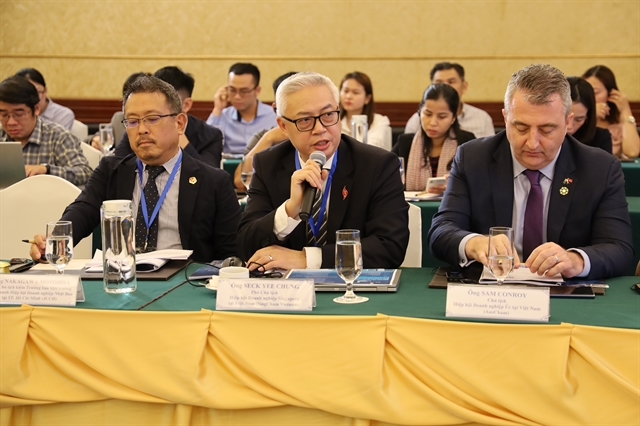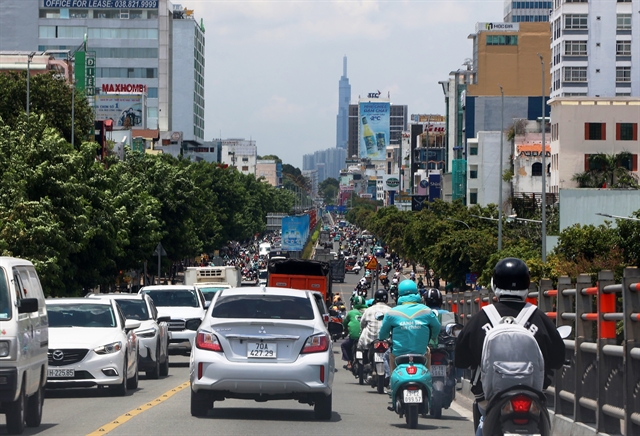 Economy
Economy

ASEAN governments should do more to make their tobacco tax policies more effective, not only for health reasons but also for the budget generation.
 |
| Cigarettes are becoming more affordable in ASEAN countries. — Photo mt.gov.vn |
HÀ NỘI — ASEAN governments should do more to make their tobacco tax policies more effective, not only for health reasons but also for the budget generation.
This was the recommendation under the tobacco tax index issued by the Southeast Asia Tobacco Control Alliance (SEATCA).
The index was released during a regional workshop on strengthening tobacco tax administration in Siem Reap recently, which was attended by tobacco tax experts from ASEAN countries, including Việt Nam, Cambodia, Indonesia, Laos and Myanmar.
The index tracked progress of the tobacco tax policy against WHO FCTC Article 6 Guidelines and showed that while some countries have made significant progress in formulating and implementing tobacco tax policies, the region as a whole has advanced at a slow pace in the past few years, outpaced by economic and income growth.
According to the index, cigarettes are becoming more affordable in ASEAN countries.
Thailand currently has the highest tax burden as a percentage of retail price (70 per cent), followed closely by Singapore (66.2 per cent) and Brunei (62 per cent). In contrast, countries with the lowest tax burdens are Cambodia (25-31.1 per cent) and Laos (16-19.7 per cent).
Việt Nam, Laos, the Philippines and Thailand have successfully earmarked tobacco excise revenue for tobacco control, health promotion and universal healthcare.
Only four (Brunei, the Philippines, Malaysia and Singapore) out of the 10 ASEAN countries tax all tobacco products in a comparable manner.
Sophapan Ratanachena, SEATCA’s Tobacco Tax Programme Manager, said most countries had no long-term tobacco tax policies with regularly adjusted fiscal and public health targets.
“The major obstacles in some countries are the ineffective tobacco tax structures (such as Indonesia’s multi-tiered system or those with purely ad valorem tax systems), weak tax administration and tobacco industry interference to weaken tax policy or reduce tax collection efforts,” Ratanachena said.
Based on international guidelines, the report urged ASEAN governments to implement long-term tobacco tax policies that include public health targets, apply a uniform specific tax system or a mixed system with a minimum specific tax floor and tax all tobacco products in a comparable way.
The governments should ask tobacco companies to periodically submit detailed financial reports; establish a tracking and tracing system, including fiscal markings with a unique identifier, to reduce the risk and assist in investigation of illicit trade; prohibit tax-free or duty-free tobacco products; and implement a code of conduct for all government ministries and officials that prohibits unnecessary government interaction with the industry.
“Legislating substantial tax increases, strengthening tobacco tax administration and protecting tax policy from tobacco industry interference are equally important for saving lives, raising revenue and controlling illicit trade,” Ratanachena said.
“This was echoed in a resolution adopted in June 2017 by the United Nations Economic and Social Council that not only gives due attention to the Addis Ababa Action Agenda, which recognises that tobacco taxation can be an effective and important means to reduce tobacco consumption and healthcare costs and represents a revenue stream for financing development in many countries, but also encourages UN agencies to develop and implement policies on preventing tobacco industry interference to ensure a consistent and effective separation between the activities of the United Nations system and those of the tobacco industry,” she added.
At the meeting, participants exchanged information, expertise and best practices in the management of tobacco taxes, identifying gaps and ways to strengthen the administration of tobacco taxes in ASEAN. — VNS